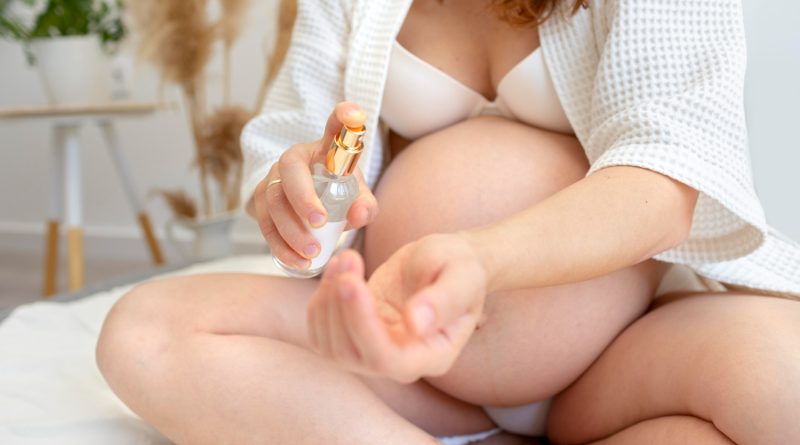Skincare During Pregnancy: Safe Practices and Products
Pregnancy is a transformative time in a woman’s life, bringing about numerous physical and hormonal changes. Among these changes, the skin often undergoes significant shifts, leading to concerns like acne, hyperpigmentation, and sensitivity. As you navigate these changes, it’s essential to adopt safe skincare practices and choose products that are safe for both you and your baby. This blog will guide you through the best practices and product choices for maintaining healthy skin care during pregnancy.
Understanding Skin Changes During Pregnancy
Pregnancy can affect your skin in various ways, primarily due to hormonal fluctuations. These changes can be challenging, but understanding them is the first step towards effective skincare. For those seeking expert advice and personalized treatment during this time, visiting the best skin clinic in Dubai can provide valuable support and guidance to manage pregnancy-related skin changes and maintain healthy skin.
Common Skin Issues During Pregnancy
- Acne: Hormonal surges during pregnancy can increase oil production, leading to breakouts.
- Hyperpigmentation: Melasma, also known as the “mask of pregnancy,” causes dark patches on the face.
- Stretch Marks: Rapid skin stretching, especially in the abdomen and breasts, can cause stretch marks.
- Dryness and Sensitivity: Hormonal changes can lead to drier skin, which may become more sensitive to products.
- Spider Veins and Varicose Veins: Increased blood flow and pressure on veins can lead to visible veins.
The Role of Hormones in Skin Changes
Hormonal fluctuations, particularly increased levels of estrogen and progesterone, are primarily responsible for these skin changes. These hormones affect the skin’s oil production, melanin synthesis, and elasticity, leading to the various conditions mentioned above.
Safe Skincare Practices During Pregnancy
When it comes to skincare during pregnancy, safety is paramount. Certain ingredients that are commonly found in skincare products should be avoided to protect your developing baby.
Ingredients to Avoid
- Retinoids: Found in anti-aging products, retinoids (like Retin-A, tretinoin, and retinol) are linked to birth defects and should be avoided.
- Salicylic Acid: High doses of salicylic acid, particularly in oral form, have been associated with pregnancy complications. Small amounts in topical treatments might be safe, but it’s best to consult your doctor.
- Hydroquinone: This skin-lightening agent is absorbed in significant amounts through the skin and is best avoided during pregnancy.
- Phthalates: Often found in fragrances and some skincare products, phthalates are linked to developmental issues in fetuses.
- Formaldehyde and Formaldehyde Releasers: These preservatives, found in some cosmetics, are known carcinogens and should be avoided.
Safe Alternatives to Common Skincare Ingredients
- For Anti-Aging: Replace retinoids with products containing bakuchiol, a plant-based alternative that mimics the effects of retinol without the risks.
- For Acne: Opt for products with azelaic acid or low concentrations of glycolic acid instead of salicylic acid. Both are effective in treating acne and are considered safe for pregnant women.
- For Hyperpigmentation: Use vitamin C serums to brighten the skin and reduce pigmentation without harmful effects.
Pregnancy-Safe Skincare Products
Choosing the right products during pregnancy can be challenging, but many brands offer safe and effective options.
Moisturizers and Hydration
- CeraVe Moisturizing Cream: Fragrance-free and rich in ceramides, this moisturizer helps restore the skin barrier and is safe for daily use.
- Neutrogena Hydro Boost Water Gel: A lightweight, hyaluronic acid-based moisturizer that provides intense hydration without clogging pores.
- The Ordinary Natural Moisturizing Factors + HA: This product is packed with ingredients that mimic the skin’s natural moisturizing factors, offering deep hydration safely.
Sun Protection
- La Roche-Posay Anthelios Mineral Sunscreen: A mineral-based sunscreen that provides broad-spectrum protection without the use of chemical filters.
- Badger Unscented Sunscreen SPF 30: A zinc oxide-based sunscreen that is gentle and effective for daily use during pregnancy.
- Supergoop! 100% Mineral Sunscreen: Another excellent option for those looking for a safe, mineral-based sunscreen that doesn’t contain oxybenzone or other harmful chemicals.
Treatment for Stretch Marks
- Bio-Oil Skincare Oil: Known for its ability to improve the appearance of scars and stretch marks, Bio-Oil is safe for use during pregnancy.
- Palmer’s Cocoa Butter Formula: This classic option is rich in cocoa butter and vitamin E, both of which help improve skin elasticity and prevent stretch marks.
- Burt’s Bees Mama Bee Belly Butter: A blend of shea butter and vitamin E, this butter helps nourish and hydrate the skin, reducing the likelihood of stretch marks.
Cleansers and Toners
- Cetaphil Gentle Skin Cleanser: This gentle, non-irritating cleanser is safe for all skin types, including sensitive, pregnancy-prone skin.
- Thayers Witch Hazel Toner: Alcohol-free and made with soothing witch hazel and aloe vera, this toner helps balance the skin’s pH without causing irritation.
- Vanicream Gentle Facial Cleanser: Specifically formulated for sensitive skin, this cleanser is free from dyes, fragrance, and harsh chemicals.
Adapting Your Skincare Routine During Pregnancy
Your skincare routine may need to be adjusted during pregnancy to address specific concerns and accommodate the safety of your baby.
Morning Skincare Routine
- Cleanser: Start your day with a gentle, pregnancy-safe cleanser to remove any overnight buildup.
- Antioxidant Serum: Apply a vitamin C serum to protect your skin from environmental damage and brighten your complexion.
- Moisturizer: Use a lightweight, hydrating moisturizer to keep your skin balanced throughout the day.
- Sunscreen: Always finish your morning routine with a broad-spectrum SPF 30 or higher sunscreen to protect your skin from harmful UV rays.
Evening Skincare Routine
- Cleanser: Use the same gentle cleanser to remove makeup, dirt, and oil from the day.
- Treatment Serum: Apply a pregnancy-safe treatment, such as a hyaluronic acid serum for hydration or azelaic acid for acne.
- Moisturizer: Choose a richer moisturizer at night to provide deep hydration and repair your skin while you sleep.
- Eye Cream: Consider using an eye cream with ingredients like peptides and hyaluronic acid to address under-eye concerns without risking harm to your baby.
Consulting with a Dermatologist
While many over-the-counter products are safe for use during pregnancy, some conditions may require professional treatment. Consulting with a dermatologist ensures that you are using the safest and most effective products for your specific skin concerns.
When to Seek Professional Advice
- Persistent Acne: If pregnancy-induced acne becomes severe or persistent, a dermatologist can recommend safe prescription treatments.
- Melasma: For those experiencing significant hyperpigmentation, a dermatologist can offer professional treatments that are safe during pregnancy.
- Severe Dryness or Sensitivity: A dermatologist can provide advice on the best products and practices to manage extremely dry or sensitive skin.
Safe In-Office Treatments
- Microdermabrasion: A gentle exfoliating treatment that can help with texture and tone without using harmful chemicals.
- LED Therapy: Safe for use during pregnancy, LED therapy can help reduce acne and improve skin appearance.
- Hydrafacial: A non-invasive treatment that cleanses, exfoliates, and hydrates the skin without the use of harsh chemicals.
Conclusion
Embracing Safe Skincare During Pregnancy
Pregnancy is a unique and special time, and your skincare routine should reflect that. By understanding the changes your skin may undergo and choosing safe, effective products, you can maintain healthy, glowing skin throughout your pregnancy. Always prioritize safety, and don’t hesitate to consult with a dermatologist if you have concerns. With the right approach, you can navigate your skincare journey with confidence, ensuring that both you and your baby remain safe and healthy.
Also Read: The Power of Rest and Relaxation: Enhancing Women’s Health




